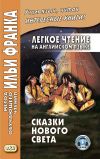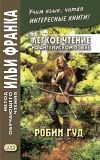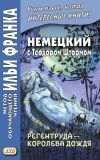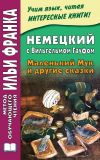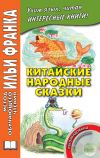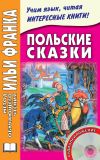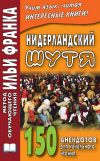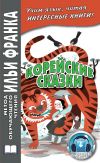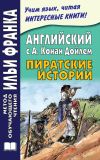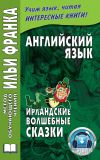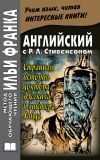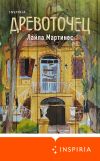Текст книги "Английский с Шерлоком Холмсом. Человек с рассеченной губой / Arthur Conan Doyle. Sherlock Holmes"
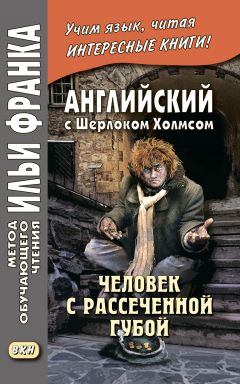
Автор книги: Артур Дойл
Жанр: Иностранные языки, Наука и Образование
Возрастные ограничения: +16
сообщить о неприемлемом содержимом
Текущая страница: 8 (всего у книги 21 страниц)
“'To continue my statement, however (однако продолжу изложение /фактов/; statement – заявление, утверждение; изложение, отчет): I relocked the bureau, using the key which Brunton had left (я снова запер бюро, используя ключ, оставленный Брантоном), and I had turned to go when I was surprised to find (и я обернулся, чтобы уйти, как вдруг с удивлением обнаружил) that the butler had returned (что дворецкий вернулся), and was standing before me (и стоит передо мной).
“'Mr. Musgrave, sir,' he cried, in a voice which was hoarse with emotion (вскричал он голосом, хриплым от волнения), 'I can't bear disgrace, sir (я не вынесу позора, сэр). I've always been proud above my station in life (я всегда гордился выше своего положения в жизни = хоть занимал небольшое место, но у меня есть гордость), and disgrace would kill me (и бесчестье убьет меня). My blood will be on your head, sir – it will, indeed (моя кровь будет на вашей совести, сэр, именно так) – if you drive me to despair (если вы доведете меня до отчаяния). If you cannot keep me after what has passed (если вы не можете оставить меня /на службе/ после того, что случилось), then for God's sake let me give you notice and leave in a month (тогда, ради Бога, позвольте мне уведомить вас об уходе и уйти в течение месяца; to give notice – извещать, уведомлять; предупреждать /об увольнении/), as if of my own free will (будто по собственному желанию; free will – свободная воля, свобода воли: of one's own free will – добровольно, по собственному желанию). I could stand that, Mr. Musgrave (я могу это вынести, мистер Месгрейв), but not to be cast out before all the folk that I know so well (но /только/ не изгнание на глазах всех этих людей, которых я так хорошо знаю; to cast out – выгонять, изгонять).'
hoarse [hɔ:s], blood [blʌd], folk [fǝʋk]
“'If you think it really necessary,' he answered, with some hesitation.
“'To continue my statement, however: I relocked the bureau, using the key which Brunton had left, and I had turned to go when I was surprised to find that the butler had returned, and was standing before me.
“'Mr. Musgrave, sir,' he cried, in a voice which was hoarse with emotion, 'I can't bear disgrace, sir. I've always been proud above my station in life, and disgrace would kill me. My blood will be on your head, sir – it will, indeed – if you drive me to despair. If you cannot keep me after what has passed, then for God's sake let me give you notice and leave in a month, as if of my own free will. I could stand that, Mr. Musgrave, but not to be cast out before all the folk that I know so well.'
“'You don't deserve much consideration, Brunton (вы не заслуживаете того, чтобы с вами много церемонились, Брантон; consideration – рассмотрение; внимание, уважение),' I answered (ответил я). 'Your conduct has been most infamous (ваше поведение было крайне постыдным; infamous – пользующийся дурной славой; позорный, постыдный, низкий). However, as you have been a long time in the family (тем не менее, поскольку вы так долго прослужили в нашей семье), I have no wish to bring public disgrace upon you (я не хочу подвергать вас общественному позору). A month, however is too long (однако месяц – это слишком долго). Take yourself away in a week (уходите через неделю), and give what reason you like for going (причину назовите какую угодно).'
“'Only a week, sir (только неделя, сэр)?' he cried, in a despairing voice (вскричал он с отчаянием: «отчаянным голосом»). 'A fortnight – say at least a fortnight (две недели – дайте хотя бы две недели)!'
“'A week,' I repeated (повторил я), 'and you may consider yourself to have been very leniently dealt with (и можете считать, что с вами обошлись очень мягко; lenient – мягкий, снисходительный; терпимый; to deal with – иметь дело с; обходиться с).'
“'He crept away, his face sunk upon his breast (он медленно побрел прочь, опустив голову на грудь), like a broken man (в полном унынии/совершенно уничтоженный; to break-broke-broken; broken – разбитый, сломанный; сломленный, сокрушенный), while I put out the light and returned to my room (а я погасил свет и вернулся к себе в комнату).
conduct ['kɒndʌkt], infamous ['ɪnfǝmǝs], leniently ['li:nɪǝntlɪ]
“'You don't deserve much consideration, Brunton,' I answered. “Your conduct has been most infamous. However, as you have been a long time in the family, I have no wish to bring public disgrace upon you. A month, however is too long. Take yourself away in a week, and give what reason you like for going.'
“'Only a week, sir?' he cried, in a despairing voice. 'A fortnight – say at least a fortnight!'
“'A week,” I repeated, “and you may consider yourself to have been very leniently dealt with.'
“'He crept away, his face sunk upon his breast, like a broken man, while I put out the light and returned to my room.
“'For two days after this Brunton was most assiduous in his attention to his duties (два дня после этого Брантон очень усердно выполнял свои обязанности; assiduous – усердный, прилежный, старательный). I made no allusion to what had passed (я не напоминал /ему/ о том, что произошло), and waited with some curiosity to see (и ждал с любопытством) how he would cover his disgrace (как он скроет свой позор). On the third morning, however he did not appear (однако на третье утро он не явился), as was his custom (по своему обыкновению), after breakfast to receive my instructions for the day (после завтрака, чтобы получить мои указания на день). As I left the dining-room I happened to meet Rachel Howells, the maid (выходя из столовой, я встретил Рейчел Хауэллс, горничную). I have told you that she had only recently recovered from an illness (/как/ я уже вам говорил, она только недавно оправилась от болезни), and was looking so wretchedly pale and wan (и была так бледна, у нее был такой болезненный/изнуренный вид: «выглядела столь по-жалкому бледной и изнуренной»; wretched – несчастный, жалкий) that I remonstrated with her for being at work (что я сделал ей выговор за то, что она принялась за работу; to remonstrate – протестовать, возражать; уговаривать).
“'You should be in bed (вам следует оставаться в постели),' I said. “Come back to your duties when you are stronger (вернитесь к исполнению своих обязанностей, когда будете сильнее = окрепнете).'
“'She looked at me with so strange an expression (она посмотрела на меня с таким странным выражением) that I began to suspect that her brain was affected (что я начал думать, не подействовала ли /болезнь/ на ее рассудок; to affect – оказывать воздействие, влияние; затрагивать; поражать /о болезни/).
“'I am strong enough, Mr. Musgrave (я вполне окрепла, мистер Месгрейв),' said she.
assiduous [ǝ'sɪdjʋǝs], recovered [rɪ'kʌvǝd], wretchedly ['reʧɪdlɪ]
“'For two days after this Brunton was most assiduous in his attention to his duties. I made no allusion to what had passed, and waited with some curiosity to see how he would cover his disgrace. On the third morning, however he did not appear, as was his custom, after breakfast to receive my instructions for the day. As I left the dining-room I happened to meet Rachel Howells, the maid. I have told you that she had only recently recovered from an illness, and was looking so wretchedly pale and wan that I remonstrated with her for being at work.
“'You should be in bed,' I said. 'Come back to your duties when you are stronger.'
“She looked at me with so strange an expression that I began to suspect that her brain was affected.
“'I am strong enough, Mr. Musgrave,' said she.
“'We will see what the doctor says (посмотрим, что скажет врач),' I answered (ответил я). “You must stop work now (вы должны прекратить работать), and when you go downstairs just say that I wish to see Brunton (а когда пойдете вниз, скажите, что я желаю видеть Брантона).”
“'The butler is gone (дворецкий пропал),' said she.
“'Gone! Gone where (куда пропал)?”
“'He is gone (он пропал). No one has seen him (никто его не видел). He is not in his room (в комнате его нет). Oh, yes, he is gone, he is gone (о да, он пропал, пропал)!' She fell back against the wall with shriek after shriek of laughter (она прислонилась к стене и начала истерически хохотать; to shriek – пронзительно кричать, орать; визжать; громко, истерически хохотать; laughter – смех, хохот), while I, horrified at this sudden hysterical attack (а я, напуганный этим внезапным истерическим припадком), rushed to the bell to summon help (бросился к колокольчику, чтобы позвать на помощь; to summon – вызвать, позвать). The girl was taken to her room (девушку увели в ее комнату), still screaming and sobbing (все еще хохочущую и рыдающую), while I made inquiries about Brunton (а я тем временем стал расспрашивать о Брантоне; to make inquiries about – расспрашивать, наводить справки). There was no doubt about it that he had disappeared (несомненно, он исчез). His bed had not been slept in (его постель оказалась нетронутой: «в постели никто не спал»), he had been seen by no one since he had retired to his room the night before (его никто не видел с тех пор, как он ушел к себе в комнату накануне вечером), and yet it was difficult to see how he could have left the house (однако трудно было понять, как он вышел из дома), as both windows and doors were found to be fastened in the morning (потому что как окна, так и двери оказались запертыми утром).
laughter ['lɑ:ftǝ], hysterical [hɪ'sterɪk(ǝ)l], doubt [daʋt], fastened ['fɑ:s(ǝ)nd]
“'We will see what the doctor says,' I answered. “You must stop work now, and when you go downstairs just say that I wish to see Brunton.'
“'The butler is gone,' said she.
“'Gone! Gone where?”
“'He is gone. No one has seen him. He is not in his room. Oh, yes, he is gone, he is gone!' She fell back against the wall with shriek after shriek of laughter, while I, horrified at this sudden hysterical attack, rushed to the bell to summon help. The girl was taken to her room, still screaming and sobbing, while I made inquiries about Brunton. There was no doubt about it that he had disappeared. His bed had not been slept in, he had been seen by no one since he had retired to his room the night before, and yet it was difficult to see how he could have left the house, as both windows and doors were found to be fastened in the morning.
“'His clothes (его одежда), his watch (часы), and even his money were in his room (и даже деньги были в его комнате), but the black suit which he usually wore was missing (но черного костюма, который он обычно носил, не было). His slippers, too, were gone (его комнатные туфли тоже пропали), but his boots were left behind (но ботинки остались: «были оставлены»). Where then could butler Brunton have gone in the night (куда же мог деться дворецкий Брантон ночью), and what could have become of him now (и что с ним стало теперь)?
“'Of course we searched the house from cellar to garret (разумеется, мы обыскали /весь/ дом от подвала до чердака), but there was no trace of him (но там не оказалось никаких его следов). It is, as I have said, a labyrinth of an old house (как я говорил, этот старинный дом – /настоящий/ лабиринт), especially the original wing (особенно самое старое крыло; original – первоначальный), which is now practically uninhabited (которое теперь практически необитаемо); but we ransacked every room and cellar without discovering the least sign of the missing man (однако мы обыскали каждую комнату и подвал, но не обнаружили ни малейшего следа пропавшего человека; to ransack – обыскивать, обшаривать). It was incredible to me (мне казалось немыслимым) that he could have gone away leaving all his property behind him (что он мог уйти, оставив все свое имущество), and yet where could he be (и все-таки где он мог быть)? I called in the local police, but without success (я вызвал местную полицию, но без результата). Rain had fallen on the night before (дождь прошел накануне вечером) and we examined the lawn and the paths all round the house, but in vain (мы осмотрели лужайку и дорожки вокруг дома, но это ни к чему не привело; in vain – напрасно, тщетно, безуспешно). Matters were in this state (дела находились в этом состоянии = так обстояло дело), when a new development quite drew our attention away from the original mystery (когда новое событие отвлекло наше внимание от первоначальной загадки).
money ['mʌnɪ], cellar ['selǝ], labyrinth ['læbǝrɪnθ], property ['prɒpǝtɪ]
“'His clothes, his watch, and even his money were in his room, but the black suit which he usually wore was missing. His slippers, too, were gone, but his boots were left behind. Where then could butler Brunton have gone in the night, and what could have become of him now?
“'Of course we searched the house from cellar to garret, but there was no trace of him. It is, as I have said, a labyrinth of an old house, especially the original wing, which is now practically uninhabited; but we ransacked every room and cellar without discovering the least sign of the missing man. It was incredible to me that he could have gone away leaving all his property behind him, and yet where could he be? I called in the local police, but without success. Rain had fallen on the night before and we examined the lawn and the paths all round the house, but in vain. Matters were in this state, when a new development quite drew our attention away from the original mystery.
“'For two days Rachel Howells had been so ill (два дня Рейчел Хауэллс была настолько больна), sometimes delirious (временами находилась в бреду; delirious – /находящийся/ в бреду; delirium – делирий, бред, расстройство сознания /сопровождаемое галлюцинациями, обычно зрительными/), sometimes hysterical (временами – в истерике), that a nurse had been employed to sit up with her at night (так что /пришлось/ приглашать к ней сиделку на ночь; to employ – нанимать; пользоваться услугами; использовать; to sit up – не ложиться спать, бодрствовать; дежурить у постели больного). On the third night after Brunton's disappearance (на третью ночь после исчезновения Брантона), the nurse, finding her patient sleeping nicely (сиделка, увидев, что больная спокойно спит; nicely – мило, хорошо, вполне), had dropped into a nap in the arm-chair (задремала в своем кресле; nap – дремота; короткий сон: to have/take a nap – вздремнуть), when she woke in the early morning to find the bed empty (когда она проснулась рано утром, то обнаружила, что кровать пуста; to wake), the window open (окно открыто), and no signs of the invalid (а больная исчезла: «больной нет ни следа»; sign – знак, признак; свидетельство).
“'I was instantly aroused (меня тотчас разбудили), and, with the two footmen (и с двумя лакеями), started off at once in search of the missing girl (я немедленно отправился на поиски пропавшей девушки). It was not difficult to tell the direction which she had taken (нетрудно было определить направление, которое она выбрала), for, starting from under her window (так как, начиная от ее окна; from under – из-под), we could follow her footmarks easily across the lawn to the edge of the mere (мы легко проследили ее следы, /они шли/ по газону до кромки пруда; mere – озеро, пруд), where they vanished close to the gravel path (где они кончались рядом с посыпанной гравием дорожкой) which leads out of the grounds (выводящей из владений; grounds – угодья; сад, парк, участок земли вокруг дома). The lake there is eight feet deep (пруд в этом месте глубиной восемь футов; lake – озеро), and you can imagine our feelings when we saw (вы можете себе представить наши чувства, когда мы увидели) that the trail of the poor demented girl came to an end at the edge of it (что следы бедной помешанной девушки кончались у кромки воды; trail – след /человека или животного/: to be on the trail of somebody – напасть на чей-либо след; demented – сумасшедший; помешавшийся: to become demented – сойти с ума, лишиться рассудка).
delirious [dɪ'lɪ(ǝ)rɪǝs], lawn [lɔ:n], mere [mɪǝ], demented [dɪ'mentɪd]
“'For two days Rachel Howells had been so ill, sometimes delirious, sometimes hysterical, that a nurse had been employed to sit up with her at night. On the third night after Brunton's disappearance, the nurse, finding her patient sleeping nicely, had dropped into a nap in the arm-chair, when she woke in the early morning to find the bed empty, the window open, and no signs of the invalid.
“'I was instantly aroused, and, with the two footmen, started off at once in search of the missing girl. It was not difficult to tell the direction which she had taken, for, starting from under her window, we could follow her footmarks easily across the lawn to the edge of the mere, where they vanished close to the gravel path which leads out of the grounds. The lake there is eight feet deep, and you can imagine our feelings when we saw that the trail of the poor demented girl came to an end at the edge of it.
“'Of course, we had the drags at once (разумеется, мы немедленно схватили драги; drag – драга; кошка, трал /устройство для извлечения предметов со дна рек или водоемов, особенно для извлечения тел утопленников/; to drag – тащить, волочить), and set to work to recover the remains (и принялись за дело, чтобы вытащить останки; to set to work – приступать к делу, приниматься за работу; to recover – вновь обретать; доставать; находить), but no trace of the body could we find (но тела не нашли). On the other hand (с другой стороны), we brought to the surface an object of a most unexpected kind (мы извлекли на поверхность совершенно неожиданный предмет; to bring; to expect – ожидать). It was a linen bag (это был полотняный мешок) which contained within it a mass of old rusted and discolored metal (содержавший множество /кусков/ старого заржавленного, потерявшего цвет металла; to discolor – обесцвечиваться, выцветать) and several dull-colored pieces of pebble or glass (и несколько тусклых осколков гальки или стекла; pebble – голыш, галька, булыжник; линза из горного хрусталя). This strange find was all that we could get from the mere (эта странная находка была всем, что мы достали = кроме этой странной находки мы ничего не достали из пруда), and, although we made every possible search and inquiry yesterday (и, несмотря на все наши поиски и расспросы, /сделанные/ вчера; every possible – всевозможный, всякий), we know nothing of the fate either of Rachel Howells or of Richard Brunton (мы ничего не знаем о судьбе ни Рейчел Хауэллс, ни Ричарда Брантона). The county police are at their wit's end (полиция графства зашла в тупик; to be at one's wit's end – быть в крайнем недоумении, в тупике; не знать, что делать, как поступить: «быть у конца своего разума»), and I have come up to you as a last resource (и я пришел к вам как к последней надежде; resource – ресурс; возможность, средство; шанс /спасения/).'
“You can imagine, Watson, with what eagerness I listened to this extraordinary sequence of events (можете себе представить, Ватсон, с каким интересом я слушал этот необыкновенный рассказ: «последовательность событий»), and endeavored to piece them together (и пытался связать их вместе), and to devise some common thread upon which they might all hang (и найти общую нить, на которой они все висели/держались; to devise – разрабатывать, продумывать /планы, идеи/; thread – нить, связь).
surface ['sɜ:fɪs], glass [ɡlɑ:s], although [ɔ:l'ðǝʋ], sequence ['si:kwǝns]
“'Of course, we had the drags at once, and set to work to recover the remains, but no trace of the body could we find. On the other hand, we brought to the surface an object of a most unexpected kind. It was a linen bag which contained within it a mass of old rusted and discolored metal and several dull-colored pieces of pebble or glass. This strange find was all that we could get from the mere, and, although we made every possible search and inquiry yesterday, we know nothing of the fate either of Rachel Howells or of Richard Brunton. The county police are at their wit's end, and I have come up to you as a last resource.'
“You can imagine, Watson, with what eagerness I listened to this extraordinary sequence of events, and endeavored to piece them together, and to devise some common thread upon which they might all hang.
“The butler was gone (дворецкий пропал). The maid was gone (горничная пропала). The maid had loved the butler (горничная любила дворецкого), but had afterwards had cause to hate him (но потом получила основания ненавидеть его). She was of Welsh blood, fiery and passionate (она была уроженка Уэльса: «уэльской крови», необузданная и горячая; passionate – страстный; вспыльчивый, горячий). She had been terribly excited immediately after his disappearance (она была крайне возбуждена сразу после его исчезновения). She had flung into the lake a bag containing some curious contents (она бросила в пруд мешок с довольно странным содержанием; to fling). These were all factors which had to be taken into consideration (все эти факторы необходимо было принять во внимание), and yet none of them got quite to the heart of the matter (однако ни один из них не раскрывал сути дела; to get to the heart of the matter – дойти до сути /дела/). What was the starting-point of this chain of events (где была отправная точка этой цепи событий)? There lay the end of this tangled line (/передо мной/ лежал /лишь/ конец этой запутанной веревки = цепи).
“'I must see that paper, Musgrave (мне необходимо увидеть ту бумагу, Месгрейв),' said I, 'which this butler of yours thought it worth his while to consult (изучение которой ваш дворецкий считал очень важным; worth one's while – стоящий затраченного времени или труда; to consult – советоваться; справляться), even at the risk of the loss of his place (даже /несмотря на/ риск потерять место; loss – потеря, утрата).'
fiery ['faɪǝrɪ], curious ['kjʋǝrɪǝs], contents ['kɒntǝnts], consult [kǝn'sʌlt]
“The butler was gone. The maid was gone. The maid had loved the butler, but had afterwards had cause to hate him. She was of Welsh blood, fiery and passionate. She had been terribly excited immediately after his disappearance. She had flung into the lake a bag containing some curious contents. These were all factors which had to be taken into consideration, and yet none of them got quite to the heart of the matter. What was the starting‑point of this chain of events? There lay the end of this tangled line.
“'I must see that paper, Musgrave,' said I, 'which this butler of yours thought it worth his while to consult, even at the risk of the loss of his place.'
“'It is rather an absurd business (это довольно нелепое дело/нелепая вещь), this ritual of ours (этот наш обряд),' he answered (ответил он). 'But it has at least the saving grace of antiquity to excuse it (единственное, что его оправдывает, – его древность; saving grace – спасительная благодать; положительное качество, перевешивающее недостатки; to excuse – извинять/ся/, прощать; оправдывать). I have a copy of the questions and answers here (вот копия вопросов и ответов) if you care to run your eye over them (если хотите взглянуть на них; to run one's eye over something – бегло взглянуть на что-либо, пробежать глазами).'
“He handed me the very paper which I have here, Watson (он передал мне ту самую бумагу, которую я держу /в руках/, Ватсон), and this is the strange catechism to which each Musgrave had to submit (и это есть то странное испытание, которому должен был подвергаться каждый Месгрейв; catechism – катехизис; изложение основ чего-либо в форме вопросов и ответов; ряд вопросов и ответов; to submit – подчинять/ся/, покорять/ся/; подвергать) when he came to man's estate (когда достигал совершеннолетия; man's estate – возмужалость, зрелость, совершеннолетие мужчины; estate – состояние, положение). I will read you the questions and answers as they stand (я прочитаю вам вопросы и ответы /так/, как они записаны здесь; as it stands – в данных условиях, так, как есть: «как это стоит»).
“'Whose was it (кому это принадлежало)?'
“'His who is gone (тому, кто ушел).'
“'Who shall have it (кому это будет принадлежать)?'
“'He who will come (тому, кто придет).'
“'What was the month (в каком месяце это было)?'
“'The sixth from the first (в шестом, начиная с первого).'
“'Where was the sun (где было солнце)?'
“'Over the oak (над дубом).'
antiquity [æn'tɪkwǝtɪ], catechism ['kætǝkɪz(ǝ)m], submit [sǝb'mɪt]
“'It is rather an absurd business, this ritual of ours,' he answered. 'But it has at least the saving grace of antiquity to excuse it. I have a copy of the questions and answers here if you care to run your eye over them.'
“He handed me the very paper which I have here, Watson, and this is the strange catechism to which each Musgrave had to submit when he came to man's estate. I will read you the questions and answers as they stand.
“'Whose was it?'
“'His who is gone.'
“'Who shall have it?'
“'He who will come.'
“'What was the month?'
“'The sixth from the first.'
“'Where was the sun?'
“'Over the oak.'
“'Where was the shadow (где была тень)?'
“'Under the elm (под вязом).'
“'How was it stepped (сколько надо было сделать шагов; to step – ступать, шагать, делать шаг; step – шаг)?'
“'North by ten and by ten (на север – десять и десять), east by five and by five (на восток – пять и пять), south by two and by two (на юг – два и два), west by one and by one (на запад – один и один), and so under (и затем вниз).'
“'What shall we give for it (что мы отдадим за это)?'
“'All that is ours (все, что наше = все, что у нас есть).'
“'Why should we give it (ради чего мы отдадим это)?'
“'For the sake of the trust (ради долга; trust – вера, доверие; долг).'
“'The original has no date (в оригинале нет даты), but is in the spelling of the middle of the seventeenth century (но, судя по орфографии, он /относится/ к середине семнадцатого века; spelling – орфография, правописание; to spell – писать или произносить /слово/ по буквам),' remarked Musgrave (заметил Месгрейв). 'I am afraid, however (впрочем, боюсь), that it can be of little help to you in solving this mystery (что он мало поможет вам в раскрытии этой тайны).'
south [saʋθ], century ['senʧ(ǝ)rɪ], remarked [rɪ'mɑ:kt]
“'Where was the shadow?'
“'Under the elm.'
“'How was it stepped?'
“'North by ten and by ten, east by five and by five, south by two and by two, west by one and by one, and so under.'
“'What shall we give for it?'
“'All that is ours.'
“'Why should we give it?'
“'For the sake of the trust.'
“'The original has no date, but is in the spelling of the middle of the seventeenth century,' remarked Musgrave. 'I am afraid, however, that it can be of little help to you in solving this mystery.'
“'At least (по крайней мере),' said I, 'it gives us another mystery (он ставит перед нами: «дает нам» другую загадку), and one which is even more interesting than the first (даже еще более интересную, чем первая). It may be that the solution of the one (может случиться так, что решение одной) may prove to be the solution of the other (окажется решением и другой). You will excuse me, Musgrave, if I say (извините меня = надеюсь, вы не обидитесь, Месгрейв, если я скажу) that your butler appears to me to have been a very clever man (что ваш дворецкий кажется мне очень умным человеком), and to have had a clearer insight (обладающим большей проницательностью; insight – проницательность; понимание) than ten generations of his masters (чем десять поколений его господ).'
“'I hardly follow you (я вас не понимаю; hardly – едва, вряд ли; с трудом),' said Musgrave. 'The paper seems to me to be of no practical importance (мне кажется, эта бумага не имеет никакого практического значения).'
“'But to me it seems immensely practical (а мне она кажется чрезвычайно практической = важной в практическом плане), and I fancy that Brunton took the same view (и, полагаю, Брантон придерживался того же мнения). He had probably seen it before that night on which you caught him (вероятно, он видел бумагу и до той ночи, когда вы застали его /в библиотеке/; to catch – ловить).'
generation [,ʤenǝ'reɪʃ(ǝ)n], immensely [ɪ'menslɪ], view [vju:], caught [kɔ:t]
“'At least,' said I, 'it gives us another mystery, and one which is even more interesting than the first. It may be that the solution of the one may prove to be the solution of the other. You will excuse me, Musgrave, if I say that your butler appears to me to have been a very clever man, and to have had a clearer insight than ten generations of his masters.'
“'I hardly follow you,' said Musgrave. 'The paper seems to me to be of no practical importance.'
“'But to me it seems immensely practical, and I fancy that Brunton took the same view. He had probably seen it before that night on which you caught him.'
“'It is very possible (вполне вероятно). We took no pains to hide it (мы и не старались спрятать ее; to take pains – прилагать усилия, стараться).'
“'He simply wished, I should imagine (надо полагать, он просто хотел), to refresh his memory upon that last occasion (освежить свою память в последний раз; occasion – возможность, /благоприятный/ случай, шанс). He had, as I understand, some sort of map or chart (как я понимаю, у него была своего рода карта или план; chart – карта; график, диаграмма, схема, план) which he was comparing with the manuscript (который он сравнивал с манускриптом), and which he thrust into his pocket when you appeared (и который он сунул в карман, когда вы появились).'
“'That is true (верно). But what could he have to do with this old family custom of ours (но какое отношение он имеет к нашему старинному семейному обряду: «обычаю»; to have to do with smth. – иметь дело с чем-либо, иметь отношение к чему-либо), and what does this rigmarole mean (и что означает этот вздор; rigmarole – пустая болтовня, вздор)?'
“'I don't think that we should have much difficulty in determining that (не думаю, что у нас будет много затруднений в определении этого = думаю, это мы выясним без особого труда),' said I; 'with your permission we will take the first train down to Sussex (с вашего позволения, мы первым /же/ поездом отправимся в Суссекс; to permit – позволять, разрешать), and go a little more deeply into the matter upon the spot (и вникнем в дело немного глубже на месте).'
Правообладателям!
Это произведение, предположительно, находится в статусе 'public domain'. Если это не так и размещение материала нарушает чьи-либо права, то сообщите нам об этом.